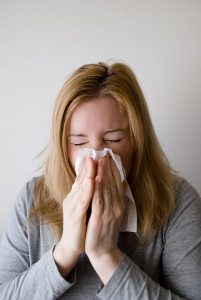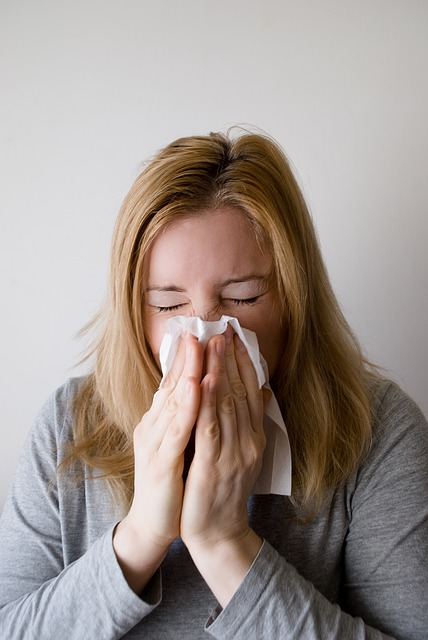We spend most of the time indoors. However, indoor spaces are full of unwanted particles which aggravate allergies. Do air purifiers help with allergies? The simple answer is yes, but we need to explain further how you can get the best air purifier in Canada and also how to maximize its efficiency.
Allergies occur when our immune systems react to foreign substances from either food, venom, pollen, or other airborne particles. Identifying the nuisance causing your throat to itch or sneezing is essential. For that reason, you should invest in an air purifier to reclaim your everyday fun life.
But do air purifiers remove allergens? Let us find out…
Types of Indoor Allergies

What are indoor allergies? Indoor allergies are triggered by allergens found inside your homes or other indoor places. The most common allergy triggers are mould, dust, dust mites, fur, organic compounds, and insects. Besides, most allergens are less seasonal and challenging to avoid than outdoor ones such as pollen.
Indoor allergens get to your body through ingestion, inhalation, and physical contact. These substances then cause undesirable symptoms such as itchy throat, watery eyes, runny nose, nasal congestion, and fatigue.
How do Air Purifiers Help with Allergies?
Air purifiers help remove air particulates in a given space. However, do they not clean pollutants on your walls, floor, or furniture. Therefore, you must learn where allergens hide inside your home and undertake regular cleaning. Once in a while, call in professional help.
An air purifier’s work is to sanitize the air by removing toxins, pollutants, and allergens. But how do air purifiers work?
UV air purifiers
UV air purifiers use ultraviolet light shortwave to inactivate airborne microorganisms such as bacteria and viruses. The shortwave UV light bombards microorganisms, tempering with the DNA they need for survival.
After damaging the DNA, the organisms trigger self-destruction, making them harmless. However, according to the EPA, mould can still cause allergies even after deactivation by UV light.
HEPA air purifiers
HEPA filters were first used to clean nuclear plants before being integrated into home air purifying devices. The filters work mechanically, forcing air through their thin mesh to trap allergens.
Also, HEPA filters are so fine that they filter particles as small as 0.3 microns in diameter. So, a HEPA air purifier can remove up to 99.97 percent of allergens from the air. You can look at our review of the best rated air purifiers in Canada for some fantastic options.
Other effective air purifiers and filters
Many other filters are very effective in air purification. Still, they have varying degrees of effectiveness in removing particles from the air. For example, activated carbon filters can only remove gaseous pollutants such as volatile organic compounds (VOCs) and odours.
The table below will help you understand how other air filters work:
| Air Filter | How it Works |
| Electrostatic filters | Uses an electrostatic charge to trap particles in the filter. |
| Electrostatic precipitators | These filters use metal plates or wires to attract particles with an opposite charge. Electrostatic precipitators can be cleaned and reused. |
| Ionizers | They emit magnetic fields to attract particles from the air. However, ionizers release ozone gases which may cause other health issues. |
| Photoelectrochemical irradiation | The purifiers use photochemical reactions to remove pollutants from the air. This technology removes particles as small as 0.1nm. |
How to select an Air Purifier for Allergies
Before selecting an air purifier, you should consider the size of your home. Knowing the size of your space helps you choose the best purifier that can comfortably handle airborne particles in the house.
In any case, you should also check the clean air delivery rate (CADR) for an air purifier. The CADR determines the number of particles an air purifier can remove at a given time and the space it can reach. For example, most HEPA purifiers clean the smallest and largest particles within a vast space with their high CADR.
We have reviewed the best air purifiers for pollen allergies in Canada to help you make a choice easily.
Conclusion
Air purifiers help with allergies. However, you must know how to choose the best air purifier for your home. This way, you’ll achieve the best performance and experience fewer allergic reactions. An air purifier with a high ACH, CADR and large room coverage will ensure that you suffer fewer attacks.
Also, you need to ensure that you buy an air purifier that uses a True HEPA filter to remove allergens from the air. Almost all airborne pollutants are trapped by this filter. If you also need to remove smoke, kitchen smells, and VOCs, look for an air purifier that has an extra filter with activated carbon.
Do air purifiers help with allergies? Yes, they do. So long as you find a good model, use the air purifier correctly, and maintain it properly. Here is a good example of an air purifier that can help with allergies:

